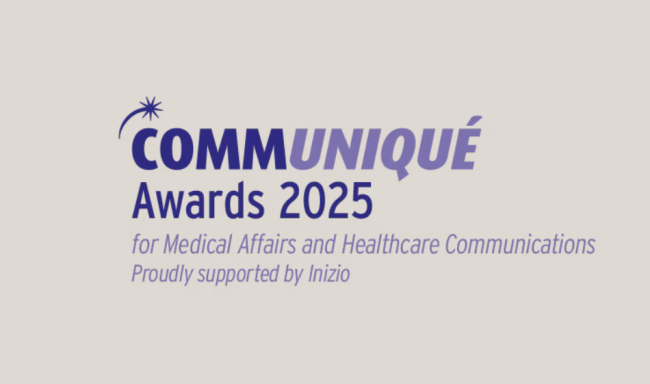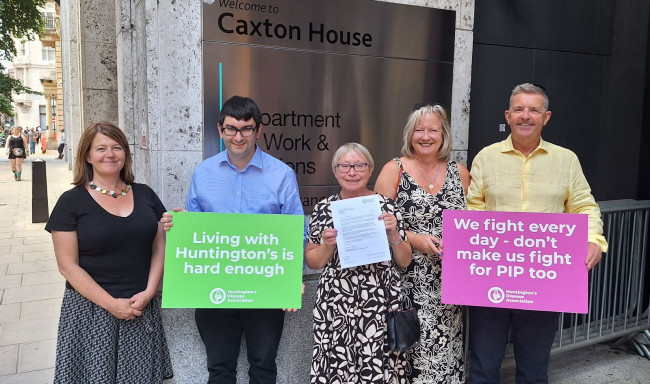On International Rare Disease Day (28 February 2023) the Government published England's second Rare Diseases Action Plan.
This plan goes further than before to support people living with rare diseases. Building on progress made in 2022, it will make sure people can access specialised care, treatment, holistic support across services and can take part in research should they want to.
Approximately 3.5 million people in the UK are living with one of over 7,000 rare diseases, such as Huntington's disease. Although rare diseases are individually rare, they are collectively common, with 1 in 17 people affected by a rare disease. However, those living with rare diseases often face complex journeys to treatment and care.
Key elements that will have significant implications for those with Huntington's disease include the emphasis on care coordination, specialist care and access to mental health support. The focus on ensuring those with rare diseases are able to access new treatments when they are available is of vital importance in the coming years.
Summary of the Rare Disease Action Plan
The 2021 UK Rare Diseases Framework set out a shared vision for improving the lives of people living with rare diseases across the UK. During 2022, each of the 4 UK nations published an action plan, detailing how these priorities would be addressed. England’s first action plan was published in February 2022, outlining 16 actions.
This second action plan also sets out 13 new specific, measurable actions to drive further improvements, and address areas of outstanding need[1]. Actions have been developed with delivery partners across the health system and in close consultation with the rare disease community, including the Huntington’s Disease Association.
Key commitments in this action plan include:
- Increasing data sharing between NHS England, NCARDRS and Genomics England, benefitting patients by improving understanding of equity of access to genomic testing and supporting interpretation of genomic test results
- Improving the way in which services for rare diseases are commissioned, through ensuring service specifications support coordinated access to specialist care, treatment, drugs, social care, mental health and special educational support
- Improving the Be Part of Research platform, to make it easier for people living with rare diseases to participate in research, should they choose to do so
- Addressing health inequalities for people living with rare diseases by gathering the evidence needed to include rare diseases in NHS England’s Core20PLUS5 framework, and enabling Integrated Care Systems (ICSs) to develop targeted actions to reduce these inequalities
- Evaluating the effectiveness of the UK Rare Diseases Framework and England’s Action Plans in making a difference to people living with rare diseases
These commitments are supported by recently announced funding for research initiatives, fostering collaborations which accelerate the understanding, diagnosis and therapy of rare diseases. These include the MRC-NIHR UK Rare Disease Research Platform and NIHR Biomedical Research Centres, at least 17 of which will include a focus on rare disease research.
The difference the plan could make for Huntington's disease
Improved quality and sharing of data
Increased data sharing will help the Huntington’s Disease Association develop a more accurate understanding of the number of people affected by Huntington’s disease. Having access to more data on the number and location of diagnoses of the condition will enable us to better scrutinise access to genetic testing and genomics services across the country.
Another important priority of the plan is to improve the use of national registries to provide a central repository for rare diseases data. Data will be reported to registries in a standardised way to enable efficient, effective and equitable use to support population-level clinical research. This is critical for those living with Huntington’s disease, to improve access to research and accelerate treatments for the condition.
Improving the way services for rare diseases are commissioned
Better coordination of care is critical for those living with Huntington’s disease. As Huntington’s disease targets nerve cells within the brain, causing a triad of symptoms (motor, cognitive and psychiatric), patients require a complex care pathway and rely on multi-disciplinary teams. However, the NHS does not currently have a service model that outlines the delivery of care for patients with the disease. This means that the standard of care for patients can vary across the country and there’s a postcode lottery in terms of accessing vital services.
Therefore ensuring service specifications support coordinated access to specialist care will be significant for those affected by Huntington’s. Having a named care coordinator for Huntington’s disease in each area will improve navigating the services required to provide the best quality of care possible. This, in addition to taking a multidisciplinary approach to healthcare - covering neurology, occupational therapy and physio, mental health, care and nursing, general medicine and dieticians, speech and language therapists - will help to improve outcomes for those living with the condition.
These types of services would also enable more support to be provided in the community, would encourage more preventive support and would provide a higher quality of care from the outset.
As an organisation we know of countless examples across the country where Huntington’s disease patients are being refused mental health services because people with ‘organic brain disorders’ aren’t eligible for mental health support. We have found that this is written into the eligibility criteria for some mental health trusts.
Improving the commissioning of mental health care services for people with rare conditions would be transformative for those affected by Huntington’s disease. Access to community health services for people with conditions such as Huntington’s disease will reduce pressure on our communities and other services by tackling mental health issues before they worsen and lead to worse outcomes for the individual and their carers/families.
Making it easier to participate in research
Developing a national research platform to make it more accessible to people affected by rare diseases could help to improve access to research, which in-turn would improve treatment and cures for rare diseases.
A priority area for the Huntington’s Disease Association is to connect research opportunities via pharmaceutical companies with those affected by Huntington’s disease. This vital research is contributing to helping to find a cure for the condition, or hold back the progression of the symptoms.
Any action from the government to increase these kinds of opportunities and streamline how patients can participate in research is welcome.
Evaluating the effectiveness of the Framework and Plans
The government’s priority to evaluate the effectiveness of the UK Rare Diseases Framework and England’s Action Plans to ensure they are making a difference to people living with rare diseases is critical.
Given the focus on improving outcomes for people with rare diseases, it would be an expectation that access to diagnosis, treatment and high quality care would all increase with time. Understanding the impact of these interventions will help to assess which actions have worked and what more needs to be done for the benefit of those affected.
Outstanding Issues
Workforce challenges
As the Rare Diseases Action Plan aims to make improvements to access to high quality care for people living with rare diseases, there will be workforce implications. This is in the context of persisting workforce challenges across healthcare, which are increasing waiting times for services, have diminished the level of care available and has led to multi-disciplinary approaches not being used as standard practice.
The plan fails to address the impact it will have on the workforce and how numbers of available staff will increase to support the aims of the plan and wider strategy.
Resources and funding
There is a lack of clarity about how many of the actions needed to support the implementation of the rare disease action plan will be funded.
It’s critical that the actions outlined in the plan have the resources necessary to achieve positive change for people affected by rare neurological conditions.
Evaluation and measurement of impact
The indicators for measuring the success of the Rare Disease Action Plan have not yet been specified. Without these, it will be impossible to assess whether care needs have been met or accurately measure any improvement in health outcomes.
We hope that further information about evaluation and measurement of impact will be outlined soon to enable members of the rare disease community to assess the outcomes of the plan and hold healthcare services to account.
If you have any questions or would like any further details, please feel free to contact
charlotte.gerada@hda.org.uk or call 07749493534




